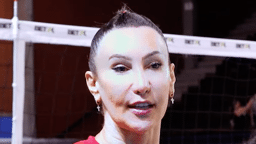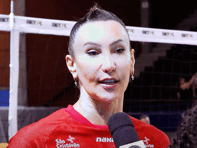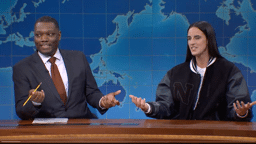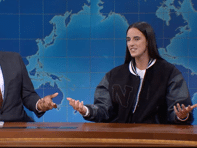(This story was published in 2002).
By: Sean Maher
Reprinted by permission from the Sydney Star Observer
The success or failure of five dance parties will be the financial make-or-break factor for Sydney 2002 Gay Games.
In an interview with Sydney Star Observer this week, Gay Games co-chair Bev Lange revealed that the organization is “being blatantly reliant” on revenue generated from the dance parties that will be held during the Games period.
Sydney 2002 organizers are hoping for income of $3.9m from the five parties, which will include two 25,000-capacity dance parties at Fox Studios following on from the Games opening and closing ceremonies.
Two smaller parties – a men’s party and a women’s party – will also use parts of Fox while a “Sunset Party” will make use of the much-loved Harbor Party site at Mrs. Macquaries Chair. It is understood that these three parties will have a combined capacity of 13,000.
Justifying the Games’ financial reliance on the dance parties, Lange said this week that Sydney 2002 had been compelled to reduce its dependence on revenue generated through sponsorships.
“We are being blatantly reliant on party income and that’s probably provided the difference between where our budget was sitting before and where it’s sitting now,” Lange said.
However, a financial strategy focused on party revenue may prove a risky venture for Games organizers. Many gay and lesbian community organizations have already experienced financial strain due to lean dance-party seasons in recent years.
Pride co-president Lou-Anne Lind told the Star that she had already expressed concerns to Sydney 2002 organizers.
“We explained that the last few seasons have been particularly difficult not just for Pride but for Mardi Gras – even the private sector will tell you the same thing. It’s been really difficult to generate hype around events, particularly in the last couple of years,” Lind said.
Mardi Gras president Julie Regan also advised caution. This year’s Mardi Gras party was the smallest in many years.
“I think they’ve obviously got their work cut out for them. I would say that, for the Games to be relying on pulling in crowds of that size, it’s perhaps optimistic given [Mardi Gras’] recent experience,” Regan told the Star.
However, Gay Games co-chair Peter Bailey defended the organization’s decision to concentrate their financial focus on the parties, pointing to the fact that the organization has based its budget on ticket sales of only around 60 percent.
“Look, I have to admit that we’re very mindful of the recent history of community dance parties.
“But you have to remember that we’re trying to appeal to a broader audience with our parties than perhaps other parties have in the past … We’re confident the approach will prove successful.”
Both Lange and Bailey pointed to the 14,500 participants and the additional 25,000 visitors who were expected for the Games as a unique marketing pool for event sales.
Controversy over the extent to which the Games should rely on party revenue is not a new issue. It was first raised last year by former International Federation of Gay Games co-president and Sydney 2002 critic Bill Wassmer.
“Sydney is just not getting it – they think it’s Mardi Gras times seven. It is not.” Wassmer told the Star in July last year.
“If you win a game, that means your event’s in the next round. You’re not going to go to an all-night party – you’re going to have dinner and go to bed and get ready for your game the next day.
“All the promoters that lost their fortune in Amsterdam with all these all-night parties that nobody went to – they thought it was Mardi Gras times eight, and it’s not gonna be. Ever. No one is going to spend $5,000 to play one game and lose in the first round. These people that are getting on these planes are goddamn serious. Are the people of Sydney getting this or are they not getting this?”
Bailey was unmoved by the point, asserting that the lack of success of the Amsterdam dance parties was due to competition from outside party operators.
“There will be a lot of people attracted to the Games that will not be necessarily participating and it is those people that we will have to target in coming months,” Bailey said.
Despite their concerns, both Regan and Lind expressed support for the Gay Games party initiative, stressing that it is important that Sydney’s gay and lesbian community rally behind the Games in order to assure its success.
ACON’s Hand In Hand party director David Wilkins offered a more cryptic comment on the road ahead for the Games parties:
“All I can say is, best of luck to them … I think that says enough.”







































